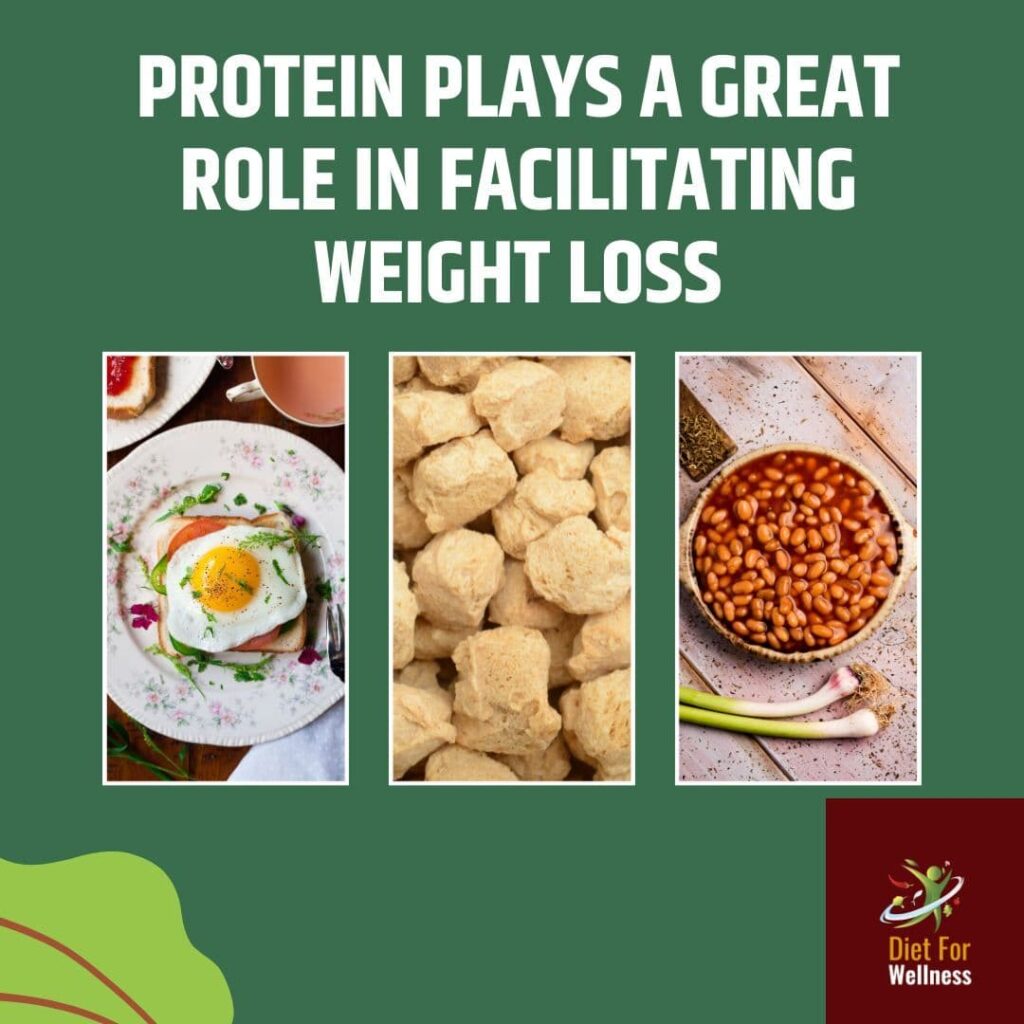Include More Protein in Your Diet as Your Weight Loss Ally

Protein forms an essential part of our dietary needs, serving as a fundamental nutrient essential for growth, repair, and maintenance within the body. It acts as the building blocks for muscles, hormones, cells, and enzymes, playing an essential role in various physiological functions. Yet, beyond its foundational importance, protein emerges as a key player in weight management.
While there’s no magic bullet for shedding the extra kilos, the composition of your meals, particularly the balance of macronutrients – fats, proteins, and carbohydrates – can wield considerable influence. Among these macronutrients, protein plays a greater role when it comes to facilitating weight loss.
The inclusion of protein in your diet offers a myriad of health benefits, ranging from satiety and craving control to the preservation of muscle mass during weight loss endeavors. Protein’s metabolic effects may prompt your body to expend more energy during digestion, inadvertently enhancing calorie expenditure.
Moving ahead we will discuss the indispensable role of dietary protein in the context of weight loss, and explore practical strategies for integrating more protein-rich foods into your daily meals.
The Weight Loss Potential of Protein
Emerging evidence suggests that protein holds the potential to foster weight loss, even in the absence of drastic alterations to overall calorie intake. Research indicates that adopting a diet rich in protein, comprising approximately thirty-five percent of total daily calories distributed across multiple meals, can lead to reductions in body fat, notably targeting abdominal fat stores.
Furthermore, a higher protein intake may facilitate weight maintenance post-weight loss, owing to its satiating properties, which may render it more palatable and sustainable compared to alternative dietary approaches, such as very low-carb regimens.
Understanding the Mechanisms
The efficacy of protein in weight loss can be attributed to several mechanisms, which are
1. Enhanced Satiety- Protein-rich foods have a pronounced satiating effect, keeping hunger at bay and promoting a sense of fullness, thus potentially curbing overeating and snacking between meals.
2. Cravings Control- Protein consumption has been associated with reduced cravings for high-calorie, unhealthy foods, potentially mitigating the impulse to indulge in calorie-dense snacks and treats.
3. Muscle Preservation- When embarking on a weight loss journey, preserving lean muscle mass is paramount. Adequate protein intake helps safeguard against muscle loss, ensuring that the weight shed primarily comprises fat stores rather than precious muscle tissue.
4. Increased Calorie Expenditure- Protein’s thermogenic effect – the energy expended during digestion, absorption, and processing – may elevate overall calorie expenditure, contributing to weight loss efforts.
Practical Steps to Boost Your Protein Intake
● Incorporate more protein-rich foods into your diet with these effective strategies
● Start your day with protein-packed breakfast options like eggs, Greek yogurt, or protein smoothies.
● Opt for lean protein sources such as poultry, fish, tofu, legumes, and low-fat dairy products in your meals.
● Snack on protein-rich foods like nuts, seeds, cottage cheese, or jerky to stave off hunger between meals.
● Make protein the focal point of your meals by centering them around a protein source and complementing them with vegetables and whole grains.
To sum it up, protein stands as a formidable ally in your quest for weight loss and improved health. With a strategic approach to protein intake, accompanied by balanced nutrition and regular physical activity, achieving your weight loss goals becomes not only attainable but sustainable in the long run.
